If you’re flying more than five hours to reach Mexico City, you need to spend at least five days exploring it. In five days, you can check off most of the major sights and popular neighborhoods off your Mexico City bucket list. This five-day Mexico City itinerary will help you make the most out of a few days in CDMX.
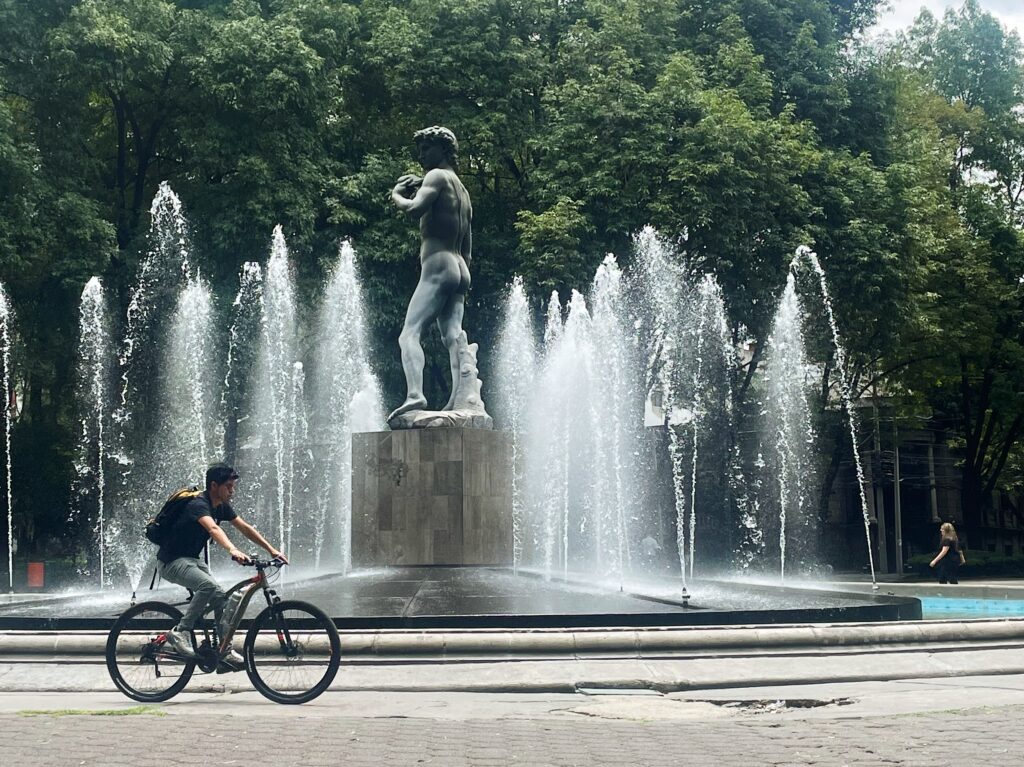
Day 1: Roma norte + La Condesa
Walking around neighborhoods is the best way to get to know a city. As you walk around Roma Norte and La Condesa, you’ll notice romantic villas amongst lush greenery, plazas with dancing fountains, and cute coffee shops on every corner.
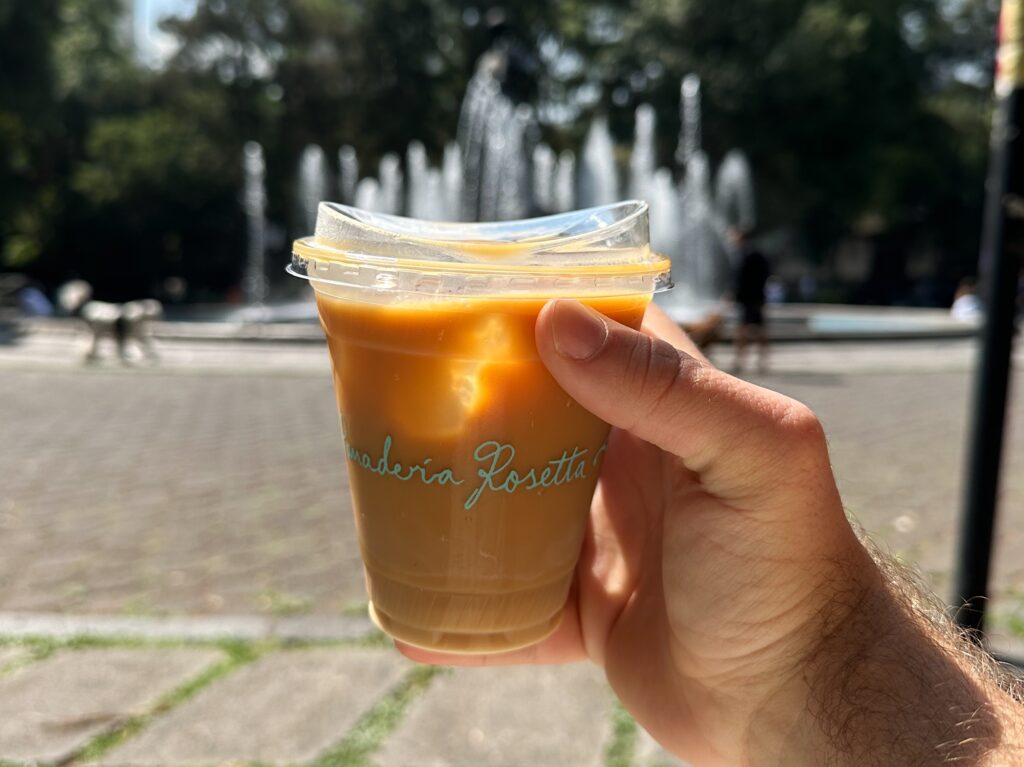
Breakfast at Plaza Río de Janeiro
Start your morning at the famous and delicious Panadería Rosetta. Order a guava roll and coffee to go and walk over to the nearby Plaza Río de Janeiro. At the plaza, there’s a fountain with a replica of Michelangelo’s David in the middle.
On the weekend, you’ll find vintage popups in the plaza. These popups are typically more affordable than the secondhand shops in the neighborhood. The resellers won’t arrive until the afternoon, so come back later for some shopping.
Avenida Ámsterdam
After you devour your pastries, walk along the treelined Avenida Ámsterdam with your coffee in hand. The avenue is a loop that surrounds Parque México. You can walk through the median under the shade of trees but don’t forget to stop at cafes and shops on either side of the street.
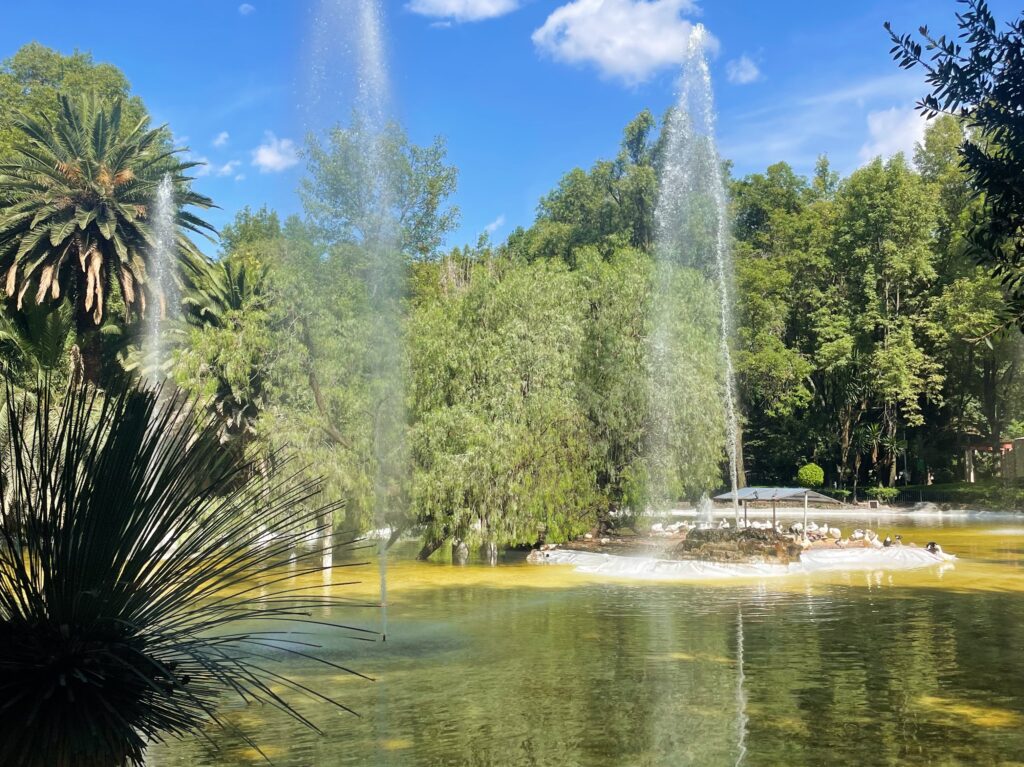
Parque México and Parque España
These two parks are a great place to kick your feet up and relax after exploring the neighborhood. Parque México is the larger of the two and attracts dog walkers, skate enthusiasts, and salsa dancers. At both parks, you’ll see a lot of locals enjoying the green space.
Secondhand Shopping
From vinyl records to secondhand clothes, Mexico City loves vintage. If you wander the streets of Roma Norte, you’ll bump into vintage stores like Erre Vintage, Goodbye Folk Vintage, and Roma Vintage. Fair warning that these stores are well-curated; therefore, they aren’t cheap.
Mercado Medellín
If you want a taste of a traditional Mexican market, go to Mercado Medellín. You can pick up Mexican candies, ingredients, and goodies to take home with you.
Dinner and Drinks in Roma
To celebrate your first day in Mexico City, get drinks at Licorería Limantour, the #4 bar in the world, before heading to Rosetta (the restaurant) for dinner. You’ll need reservations at both places, so make sure to book them in advance.
For a list of where to eat and drink in Mexico City, check out this guide.
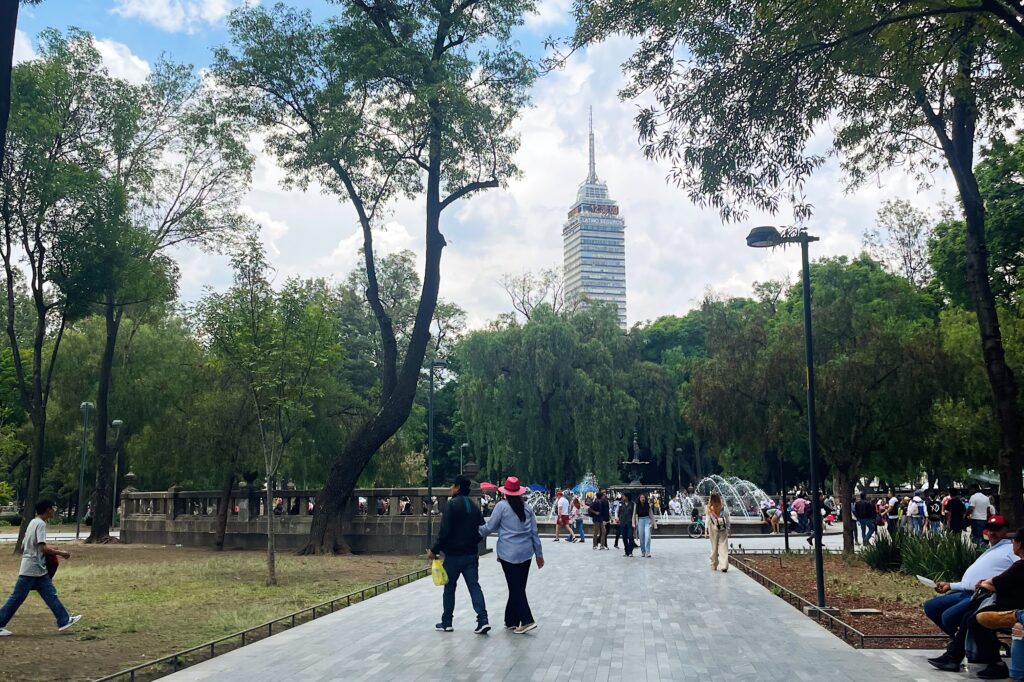
Day 2: THE CITY CENTER
Mexico City’s city center doubles as its historic center, making it a bit hectic. Roam around its streets to hit these must-see spots in the bustling downtown area.
Zócalo
Every city in Mexico has a Zócalo, or public square, at its center. Mexico City’s Plaza de la Constitución is the largest public square in Latin America. At the Zócalo, you can see the palace, city hall, and stunning architecture. Take a photo with the giant Mexican flag that flies above the Centro Histórico.
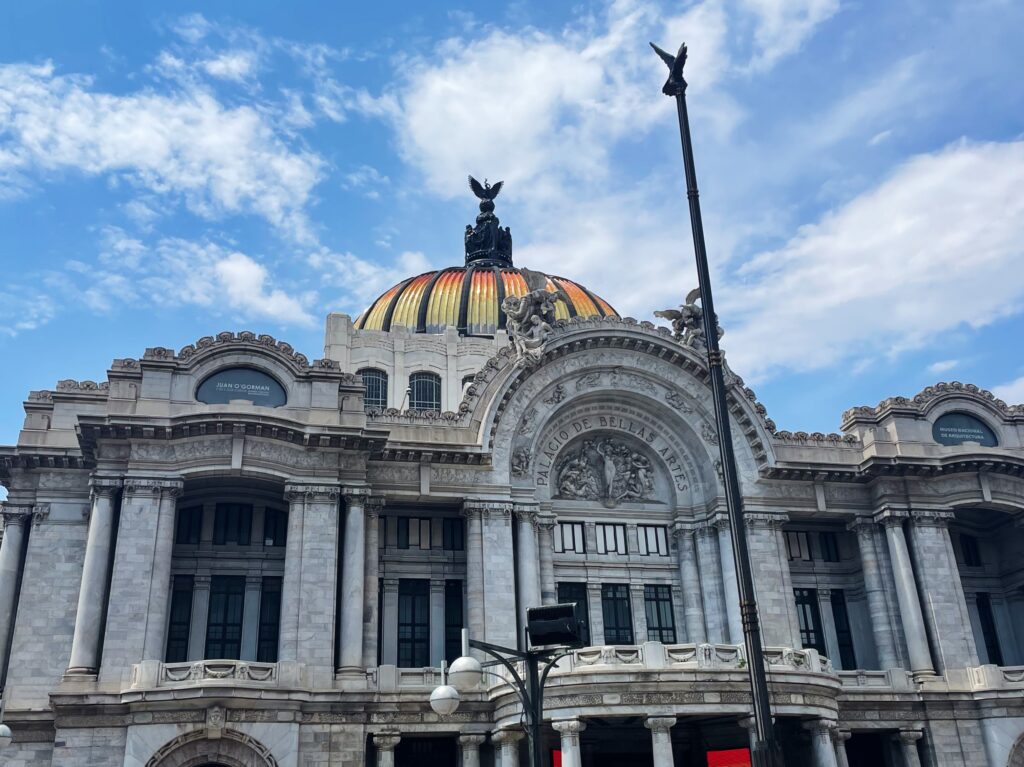
Palacio de Bellas Artes
It’s a nice walk through the city center to the Palacio de Bellas Artes in the neighboring area of Alameda. With a colorful art nouveau dome, it’s hard to miss the Palacio de Bellas Artes. It’s home to a museum with rotating modern art exhibits and a permanent collection of murals that were painted by famous Mexican muralists like Diego Rivera. Tickets to visit the museum are 75 MXN and it’s free on Sundays.
If you want to get a good view of the Palacio de Bellas Artes from above, go across the street to Sears and look out the window.
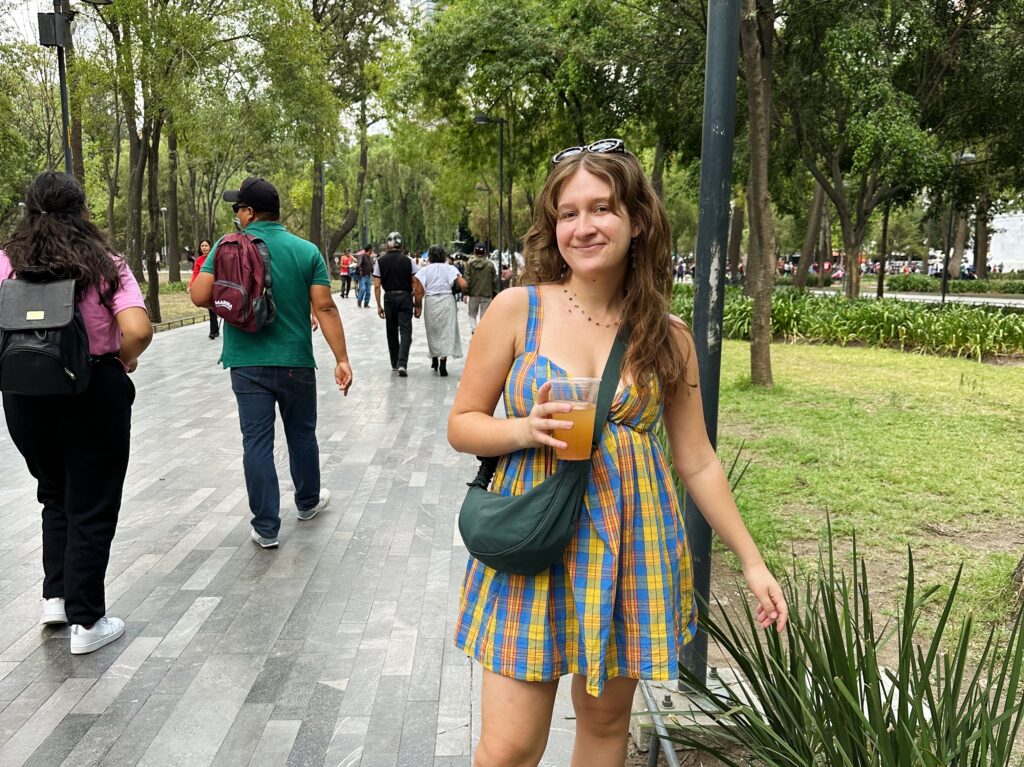
Alameda Central
Next to Palacio de Bellas Artes is Alameda Central, a lively park with a market on the weekends. At the little market, you’ll find street food, agua frescas, and souvenirs. Through the trees, there’s a good view of the Torre Latinoamericana.
Torre Latinoamericana
At 44 stories tall, Torre Latinoamericana towers over Centro Histórico. That may not sound very tall but it used to be the tallest building in Latin America. Today, it is a fixture in Mexico City’s skyline and acts as an iconic photo op. You can go up to the observation deck for 170 MXN or go for a drink on the 41st floor for the price of a cocktail.
La Ciudadela and Mercado San Juan
For the ultimate artisanal market experience, head to La Ciudadela. It has rows and rows of vendors selling everything from ceramics from Puebla to textiles from Oaxaca. Many vendors accept credit cards but make sure to bring cash just in case. For a more chill vibe, go to Mercado San Juan. Here, there are fewer vendors and people so you can shop on your own time.
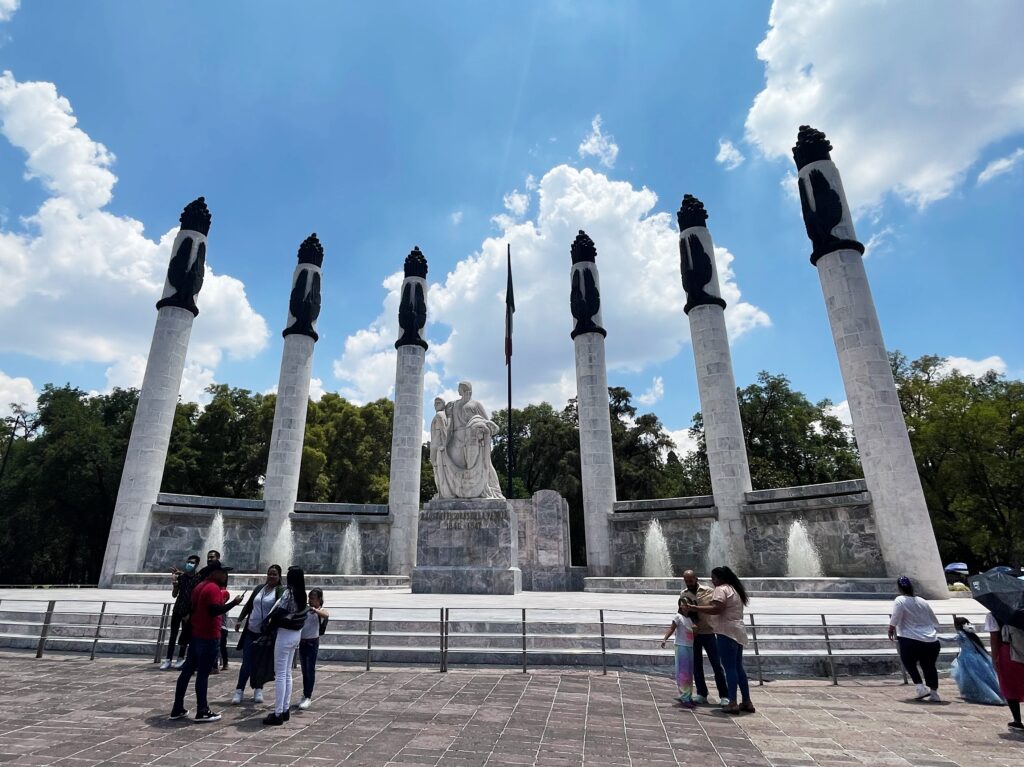
Day 3: Chapultepec
You can spend a whole day exploring the Bosque de Chapultepec, Mexico City’s largest park. It has museums, lakes, castles, history, and so much more. The main entrance is at the end of the Paseo de la Reforma at the Puerta de los Leones, an archway with two lions guarding the entrance.
Museum of Modern Art
Start your day at the Museum of Modern Art. It’s a three-story museum that showcases Mexican modern art, including the famous The Two Fridas. On Sundays, the museum is free to enter.
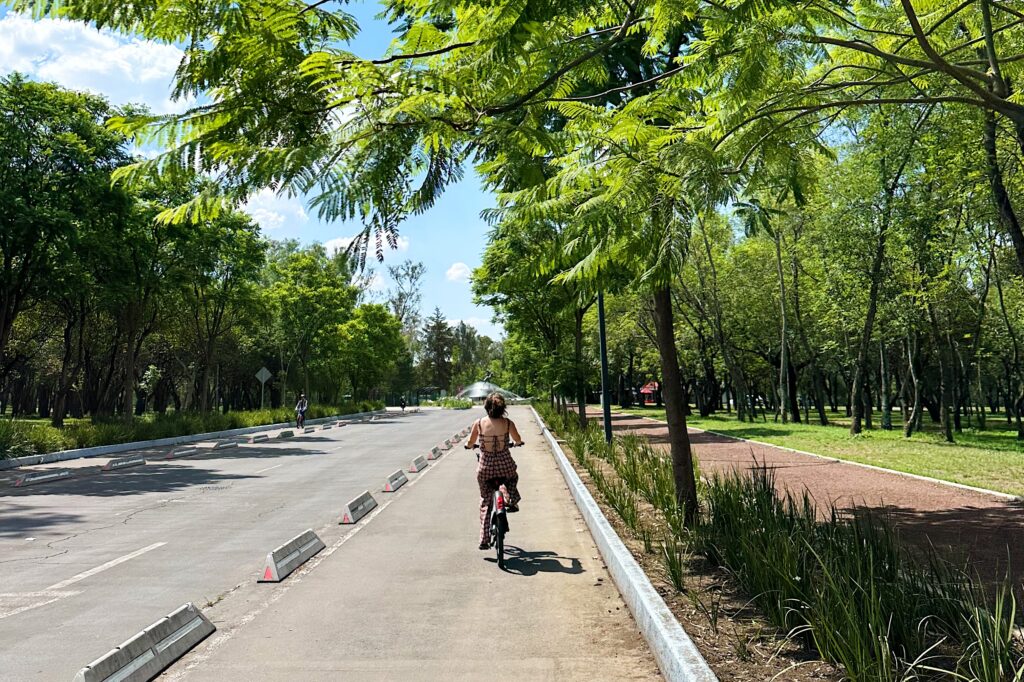
Bike Chapultepec
To make the most out of your day in the park, rent a bike. Across the street from the museum, you can rent bikes from Ecobici by downloading their app. It was 7 USD to rent bikes for about 2 hours. Chapultepec is divided into three sections, with section one being the closest to the city center. The park can be hilly at times so be prepared for some uphill stretches.
Niños Héroes Monument
If you walk directly through the main entrance at Puerta de los Leones, you’ll bump into the Niños Héroes Monument, which commemorates six cadets who lost their lives at one of the last battles of the Mexican-American war. From this monument, the park splits up into different pathways that you can take.
Chapultepec Castle
On top of Chapultepec Hill sits a castle that used to house the Mexican president. Today, it’s home to the National History Museum, manicured gardens, and beautiful architecture (inside and out). To enter the castle, it costs 85 MXN. Even if you don’t care to explore the castle’s grounds, you can climb up the hill for great views of Mexico City.
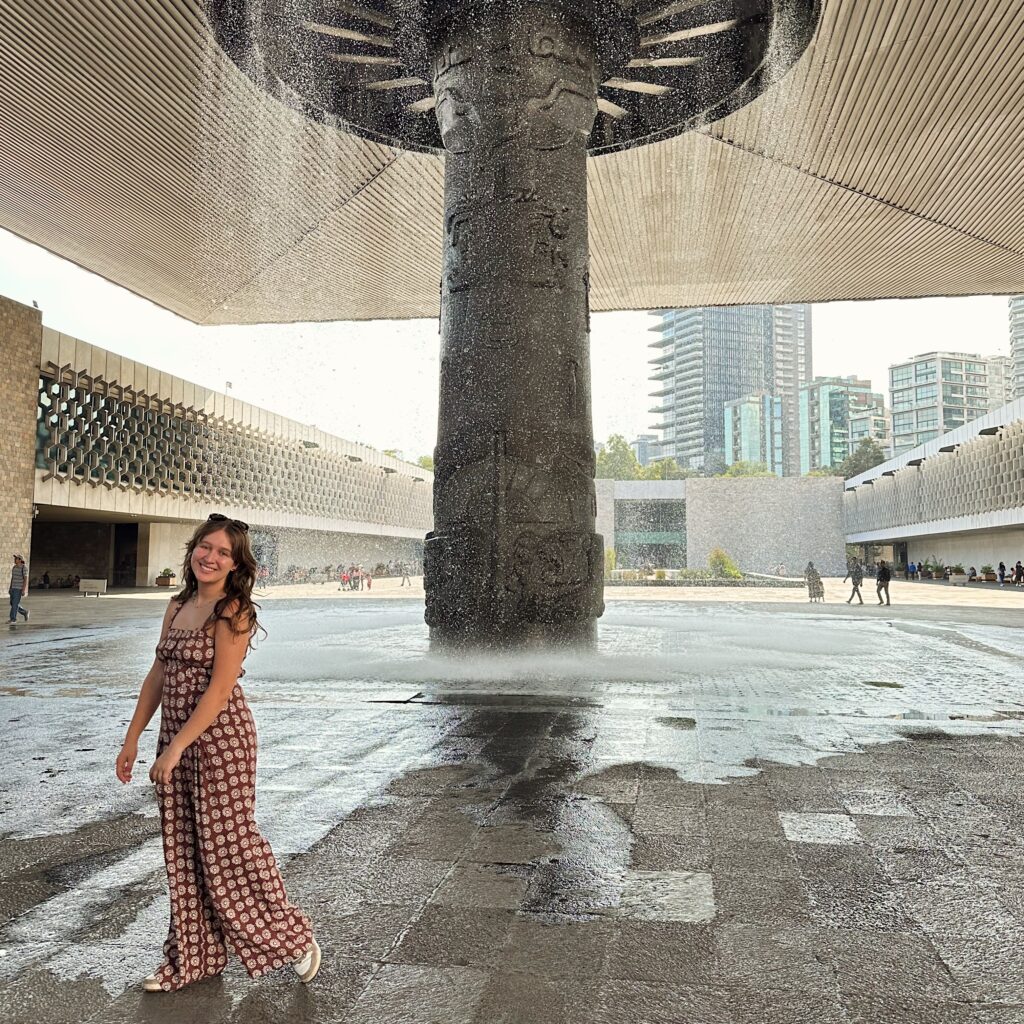
National Museum of Anthropology
Even if you aren’t an anthropology buff, the National Museum of Anthropology is worth the visit for the museum’s architecture. The exhibit halls wrap around a courtyard with a giant fountain. The must-see artifacts are the Aztec Sun Stone, Montezuma’s Headdress, the Olmec Colossal Head, and the recreation of Palak’s tomb. Tickets to the museum are 90 MXN for foreigners and free on Sundays for locals.
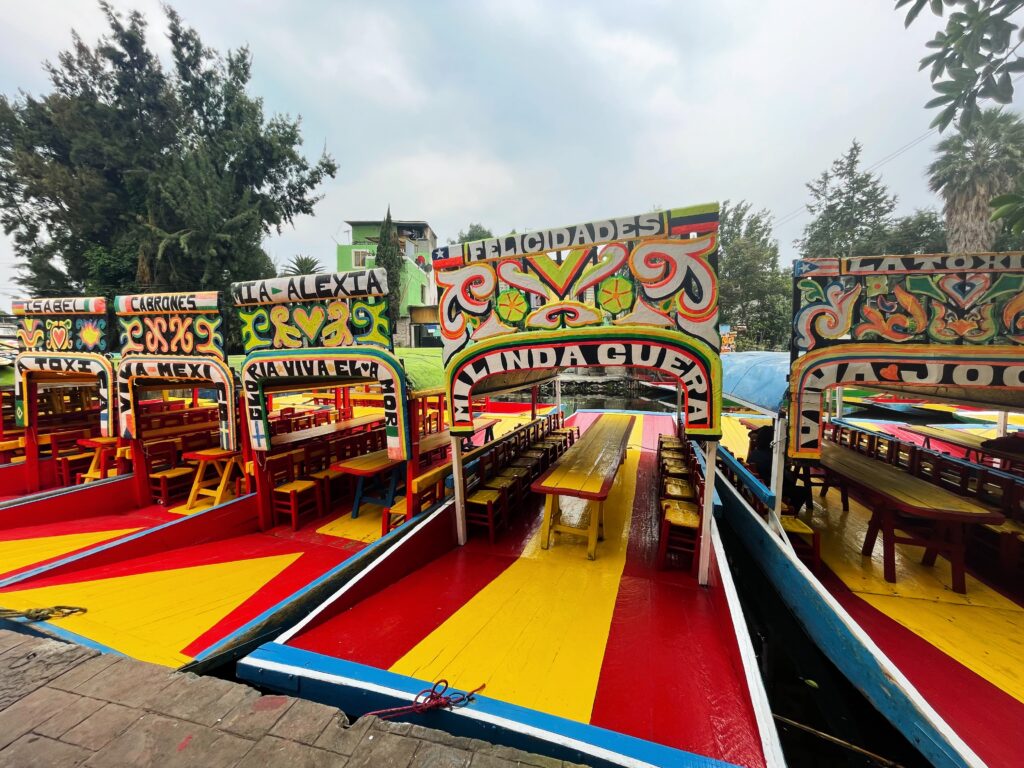
Day 4: Xochimilco + Coyoacán
Xochimilco and Coyoacán are both in the southern part of Mexico City, so it’s easy to knock out both neighborhoods in one day.
Xochimilco Canals Tour
People flock to Xochimilco’s canals for bachelorette parties, romantic cruises, and Instagram-able photos at this UNESCO heritage site. You’ll want to book a tour to explore the network of ancient tours on a trajinera, which is a traditional gondola-like boat.
I recommend this half-day tour that takes on a mini walking tour through the neighborhood with a guide before hopping on a 2-hour boat ride. It includes breakfast and lunch in the market, plus a mezcal tasting and bottomless micheladas on the canal cruise. Make sure to hire a floating band of mariachis to perform a song or two for your crew.
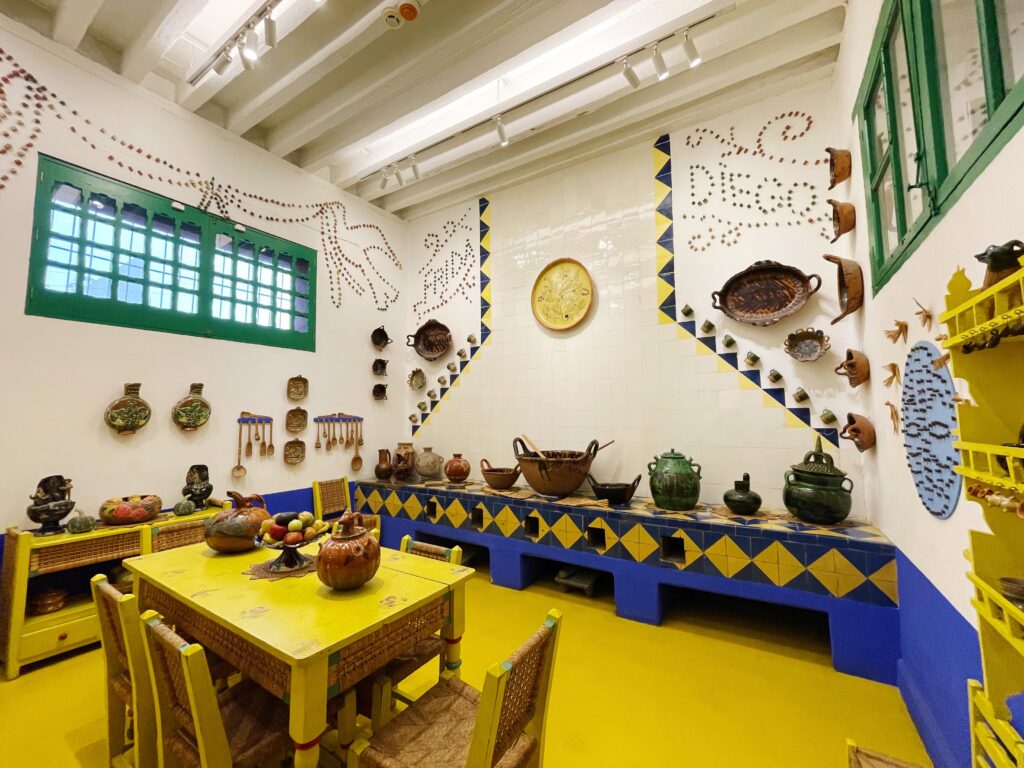
Casa Azul: Frida Kahlo Museum
After your canal cruise, head to the Frida Kahlo Museum in Coyoacán. The museum is at Casa Azul, the small blue house that Frida Kahlo grew up in. The museum focuses more on Frida Kahlo’s life than her art.
You’ll need to buy tickets to the museum well in advance and choose an arrival time. If you arrive late, you risk not being granted entrance, so give yourself at least 30 minutes to get to Coyoacán from Xochimilco.
Explore Coyoacán
Before heading back to the city center, make sure to walk the streets of Coyoacán and pop into Mercado Coyoacán, which is steps away from the Frida Kahlo Museum
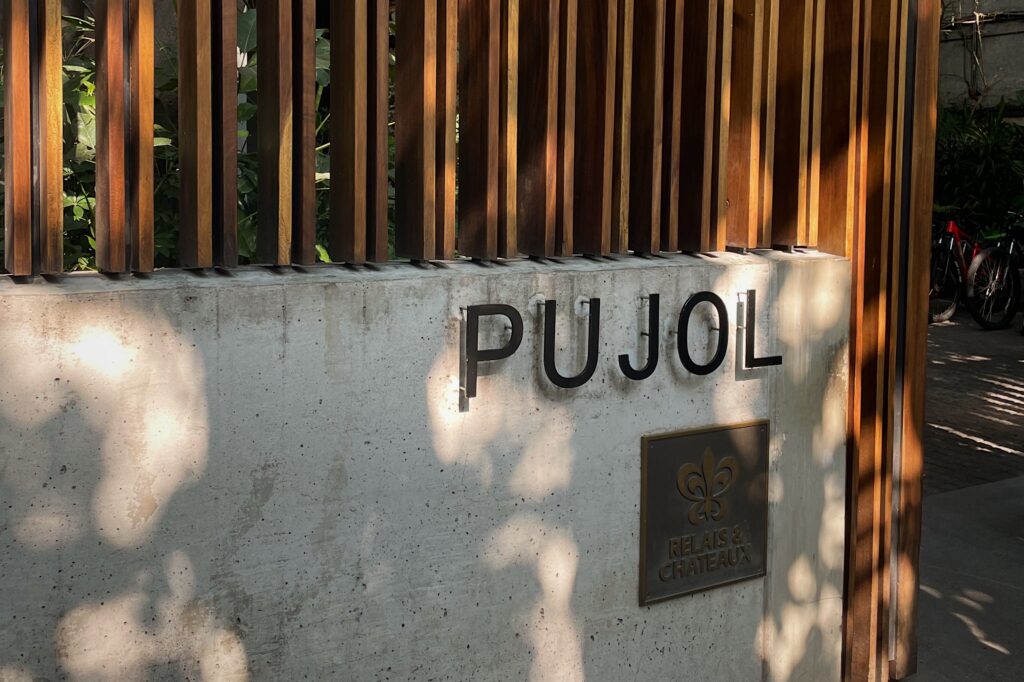
Day 5: Juárez + Polanco
For your final day, you’ll get to know two neighborhoods: Juárez and Polanco. Juárez has a real city feel while not being as hectic as Centro Histórico. Northwest of Juárez is the ritzy neighborhood of Polanco. Polanco is the Beverly Hills of Mexico City with luxury shops surrounded by luxury homes.
Start your day walking the streets of Juárez and reward yourself with dinner at one of Polanco’s top restaurants.
Paseo de la Reforma
By this point, you’ve seen most of Mexico City, all that’s left is to walk down the iconic Paseo de la Reforma. The Paseo de la Reforma is the main artery that runs through the city. Walking the street west through Juárez will lead you down to Chapultepec.
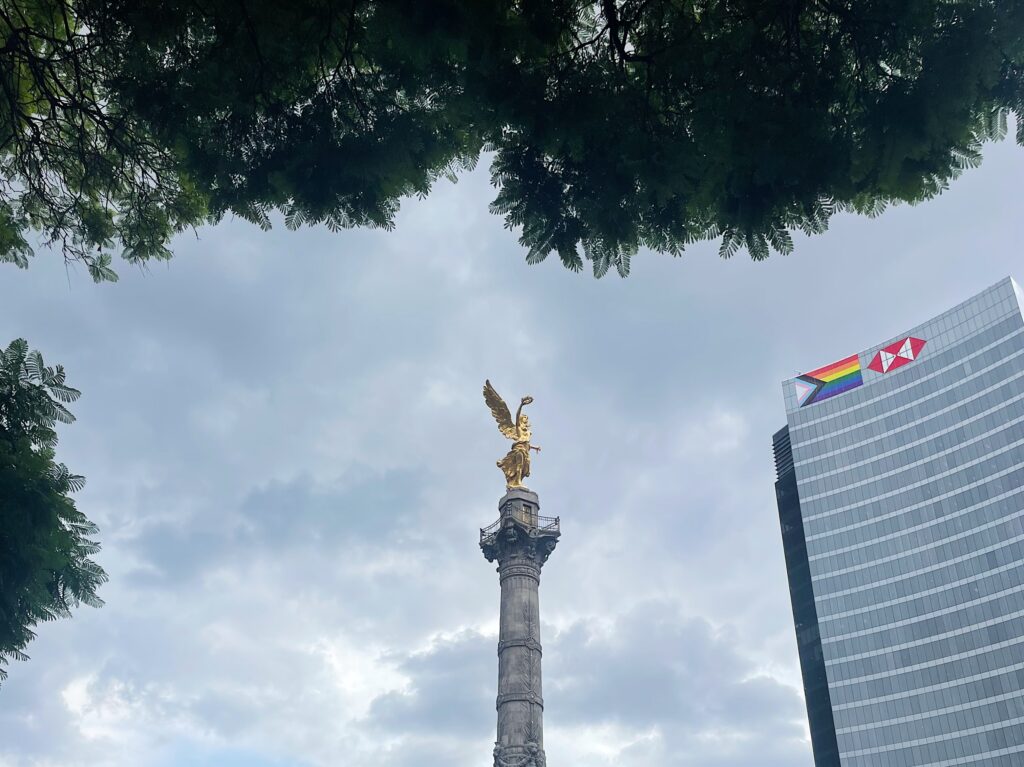
The Angel of Independence
If you walk down the Paseo de la Reforma, you’ll run into The Angel of Independence or El Ángel. It’s a golden angel that commemorates the centennial of the start of the Mexican War of Independence.
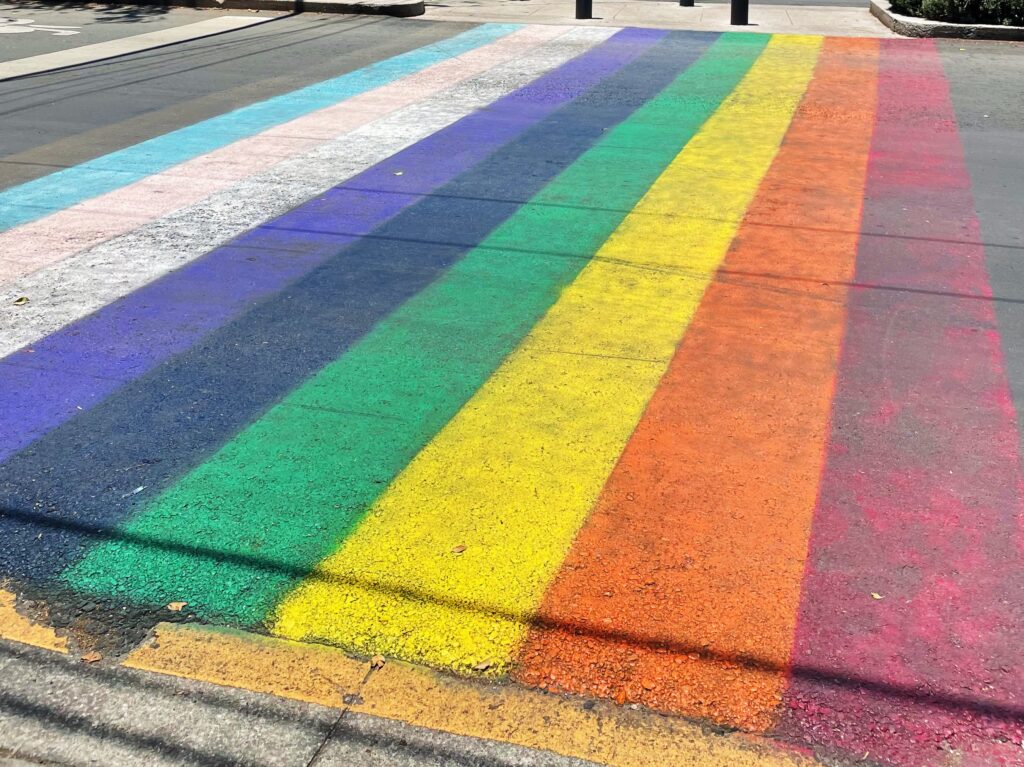
La Zona Rosa
Within the larger neighborhood of Juárez is La Zona Rosa, a historically LGBTQ+ district with a growing Korean immigrant population. It’s known for its fun nightlife and great restaurants.
Window Shopping
Next, you’ll head up to Polanco, which is known for its shopping malls and luxury stores. If you walk down Presidente Masaryk Avenue, you’ll be able to do some window shopping at boutiques from top designers and more approachable chain stores like Zara.
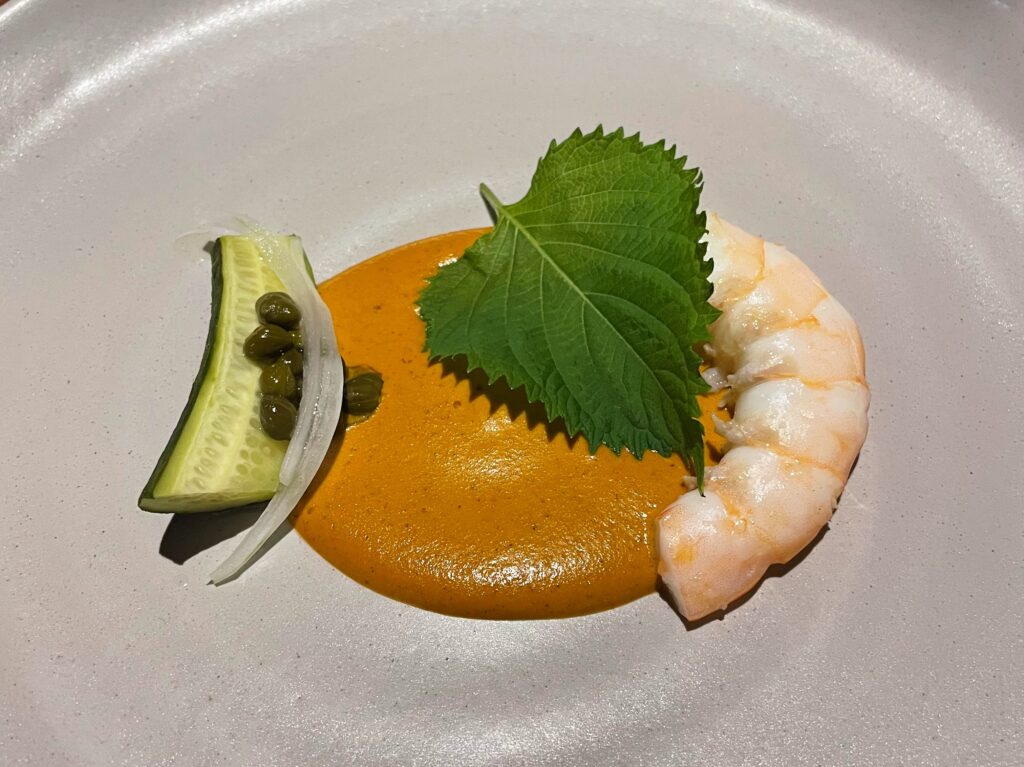
Dine at Pujol or Quintonil
The top two restaurants in Mexico City are in Polanco. In 2023, Pujol and Quintonil were named in the top 15 of the World’s Best 50 Restaurants list. Both restaurants focus on elevating Mexican cuisine and offer tasting menus. Although both tasting menus come at Polanco price tags, it’s much more affordable than going to a similar dining experience in Europe or the United States. Make sure to book your table far in advance.
Staying in Mexico City for longer? Check out this 7-day Mexico City itinerary.
More Mexico City Resources
The Ultimate Guide to Mexico City
Reply